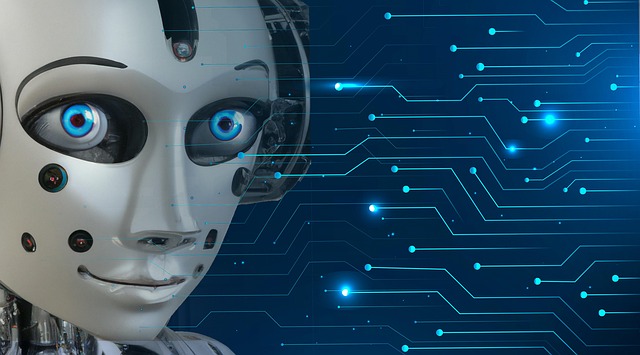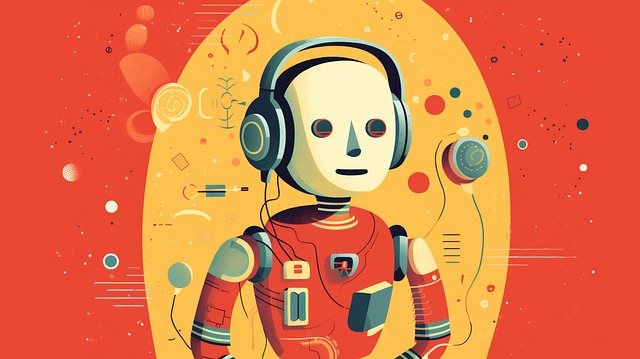AI assistants drive smart home evolution through personalization, offering tailored automation and intuitive interaction. They enhance security with advanced surveillance and anomaly detection, automating responses for proactive protection. AI optimizes energy management by analyzing user behavior and environmental conditions, curbing costs and promoting sustainability. As family communication hubs, they streamline daily tasks and foster emotional connections. Predictive analytics enable proactive smart home maintenance, extending device lifespans and reducing waste.
The future of smart homes is here, powered by artificial intelligence (AI) assistants that transform living spaces into personalized, efficient, and secure environments. This article explores the vast potential of AI in revolutionizing daily routines. From tailored home automation that learns individual preferences to advanced safety features providing proactive risk assessment, AI-driven systems enhance quality of life. We delve into energy management optimization, seamless family communication, and predictive maintenance, showcasing how AI assistants are becoming indispensable pillars of modern homes.
- Personalized Experience: Tailoring Home Automation to Individual Preferences
- Enhanced Safety and Security: AI-Powered Surveillance and Risk Assessment
- Efficient Energy Management: Optimizing Consumption with Intelligent Systems
- Seamless Communication: Integrating Voice Assistants for Family Interactions
- Proactive Maintenance: Predictive Analytics for Longevity of Smart Devices
Personalized Experience: Tailoring Home Automation to Individual Preferences

In a future driven by AI, smart home systems are poised to offer personalized experiences like never before. By leveraging machine learning algorithms and natural language processing, AI assistants can understand individual user preferences, behaviors, and routines. This level of customization allows for tailored automation—the lights adjust according to your preferred sleep schedule, the thermostat learns your temperature settings over time, and your favorite music playlist plays automatically when you step into the room.
The integration of AI in smart homes promises to create a seamless and intuitive living environment. Users can interact with their home environments using simple voice commands or personalized gestures, making daily tasks more efficient and convenient. This evolution goes beyond mere automation; it’s about creating a responsive, adaptive space that anticipates and caters to individual needs, ensuring a truly customized and comfortable living experience.
Enhanced Safety and Security: AI-Powered Surveillance and Risk Assessment

AI assistants are poised to revolutionize smart home security, offering enhanced safety features through advanced surveillance and risk assessment capabilities. These AI systems can analyze live video feeds and sound patterns in real-time, identifying potential threats or unusual activities that might go unnoticed by traditional security systems. By learning typical household routines and behaviors, AI algorithms can detect anomalies, such as unauthorized access or suspicious movements, triggering alerts to keep residents informed and protected.
Moreover, AI assistants can integrate with existing smart home devices to create a comprehensive security network. They can automate responses, like dimming lights or activating alarms, based on specific events or rules set by homeowners. This proactive approach to security not only ensures better protection but also empowers users with greater peace of mind, knowing their homes are being monitored by intelligent, adaptive technology.
Efficient Energy Management: Optimizing Consumption with Intelligent Systems

Smart home systems powered by AI assistants have the potential to revolutionize energy management, offering efficient and optimized consumption patterns. These intelligent systems can analyze household energy usage data in real-time, identifying areas for improvement and implementing changes to reduce overall energy costs. By learning from user behavior and adapting to dynamic environmental factors, AI assistants can automatically adjust lighting, heating, and cooling systems, ensuring optimal comfort while minimizing waste.
For instance, these assistants can program thermostats to adjust temperatures based on occupancy and time of day, preventing energy-intensive operations during unoccupied periods. Moreover, they can integrate with smart appliances, optimizing their usage and reducing the strain on the power grid. This not only benefits homeowners by lowering utility bills but also contributes to a more sustainable future through responsible energy management.
Seamless Communication: Integrating Voice Assistants for Family Interactions

In a future driven by smart home technology, seamless communication between family members and AI assistants will redefine daily interactions. With natural language processing and context awareness, these assistants can facilitate more meaningful conversations, understanding not just commands but also emotional cues. Imagine parents setting reminders for kids’ school activities or scheduling family time based on everyone’s availability, all through voice commands.
This integrated approach allows for a more cohesive family experience within the smart home environment. AI assistants can act as central hubs, connecting various devices and services to ensure smooth, hands-free control. Whether it’s adjusting lighting, playing music, or managing security systems, these assistants will enable families to interact with their homes in intuitive and personalized ways, fostering stronger connections through technology.
Proactive Maintenance: Predictive Analytics for Longevity of Smart Devices

AI assistants can revolutionize smart home maintenance by leveraging predictive analytics. By analyzing patterns and trends from sensor data, AI algorithms can anticipate potential device failures before they occur. This proactive approach allows for scheduled maintenance, reducing unexpected breakdowns and extending the lifespan of smart home devices. With regular updates and adjustments based on real-time performance data, smart appliances, lighting systems, and security cameras can maintain optimal efficiency, ensuring a seamless and reliable living environment.
Predictive analytics also enables homeowners to make informed decisions about device replacements or upgrades. AI assistants can provide insights into the remaining useful life of various components, guiding users towards cost-effective maintenance choices. This not only enhances the overall performance of smart home systems but also cultivates an environmentally conscious mindset by prolonging the use of existing technology, thereby reducing electronic waste.
